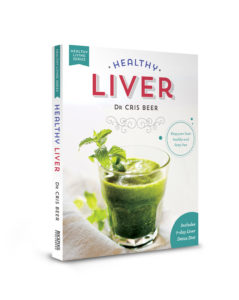Article in Body and Soul
Why are the Food Intolerances on the Rise?
More and more of us, it seems, are negatively affected by the foods we eat. Why? We weigh up the evidence
Food intolerances are said to affect one in four Aussies and are often difficult to distinguish from food allergies, with symptoms ranging from abdominal bloating and pain, to headaches, palpitations, diarrhoea and asthma-like symptoms.
Food intolerance is a “chemical” reaction after eating or drinking foods, the most common including milk protein (casein) and lactose (the sugar in milk), gluten and/or wheat, food preservatives and colours, and naturally occurring compounds in foods such as salicylates.
Why the increase in food intolerance? There are several proposed theories.
The SIBO theory
Small intestinal bacterial overgrowth or SIBO is an imbalance of bacteria in the intestinal tract that causes release of inflammatory toxins that damage the gut.
This leads to issues with digestion due to loss of normal gut wall function. Incompletely digested food then passes into the large intestine and is fermented by the colon’s bacteria. This causes a build-up of intestinal gas which can lead to gut dysfunction and result in bloating, wind, constipation, and/or diarrhoea.
This imbalance of bacteria may have various causes including medication use, stress, diet and metabolic disorders.
The epigenetics theory
Epigenetics describes how genes can be influenced by our environment. This theory states that a change in the expression of our genetic code, in particular from what we’ve been eating and even what our grandparents and parents ate, has led to sensitivities. The onus is on us to be aware of our genetic make-up to determine what foods to avoid, and more research is needed.
The inflammation theory
Inflammation in the intestinal tract is thought to be caused by not just changes in our intestinal bacteria, but from agricultural pesticides and other chemicals used in food production. This inflammation damages our gut wall and impairs digestion, causing an intolerance.
The overload theory
The overload theory states that we are exposing ourselves to either too many potential intolerant food substances at once (by eating too many of them), or too soon in the case of infants. This is overwhelming our digestive tract and the inability to digest these foods is leading to food intolerances.
How to get tested?
If you’re concerned about a food intolerance, speak to your GP. Depending on symptoms, they’ll undertake several investigations, such as a blood test, to rule out coeliac disease (gluten “allergy”), a breath test to rule out lactose intolerance, and/or stool testing to rule out an infection. If your symptoms are severe or show anything of concern, they may arrange a gastroscopy or colonoscopy. They may also suggest a food elimination diet, which is the only true way to determine what foods you’re intolerant to.
#healthyhabits #healthyliver
Dr Cris
Holistic Medical Doctor, Author ‘Healthy Habits, 52 Ways to Better Health‘ and Healthy Liver



